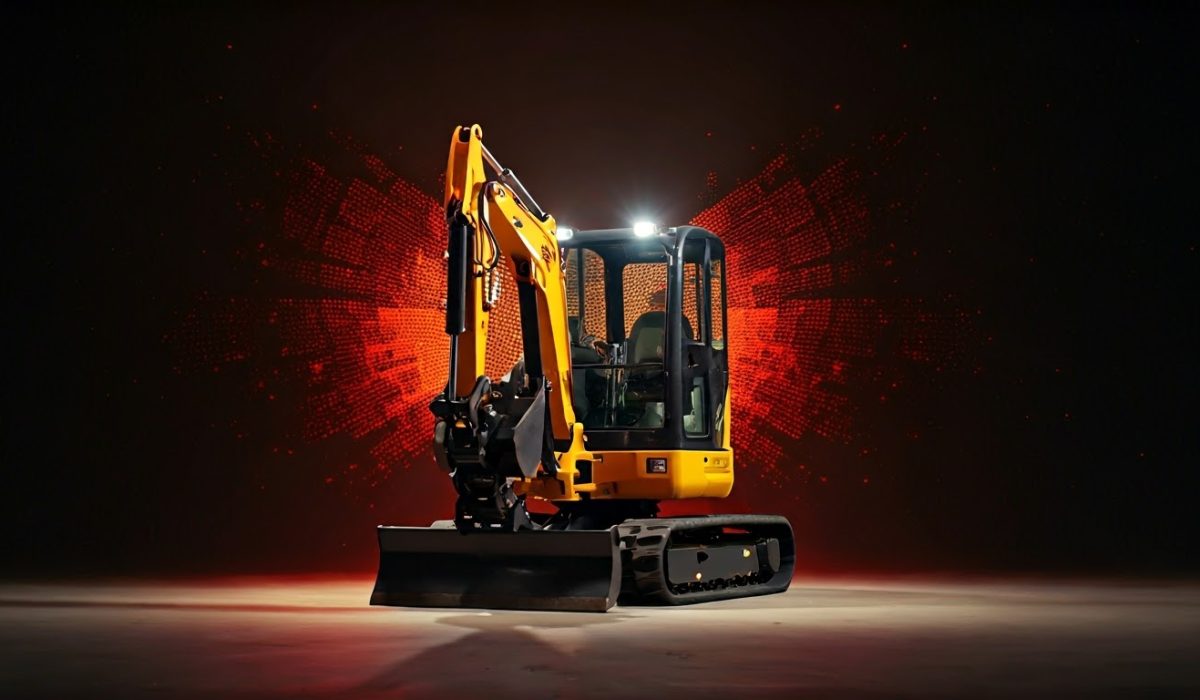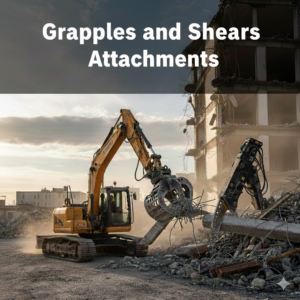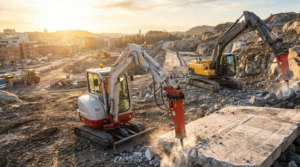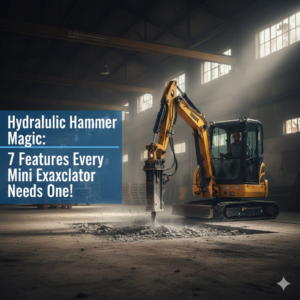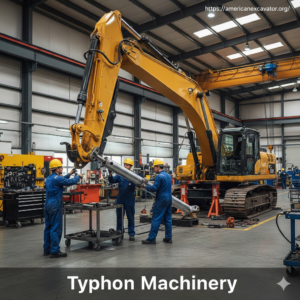Mini excavators are a staple in construction and landscaping. They’re compact, versatile, and efficient.
But what about the smallest ones?
The smallest mini excavators are even more compact. They’re perfect for tight spaces and smaller projects.
However, finding the best price for these machines can be a challenge. Prices vary based on many factors. This guide will help you navigate the smallest mini excavator prices. It will provide insights into what influences these prices and how to find the best deals.
Whether you’re a business owner or a DIY enthusiast, this guide is for you. Let’s dive into the world of mini excavators and their prices.
Understanding Mini Excavators and Their Uses
Mini excavators are compact yet mighty machines. They fill an important niche in construction and landscaping. Their size makes them ideal for jobs in confined spaces.
These machines can perform a variety of tasks. They dig, trench, and lift efficiently. Additionally, they’re used in demolition and grading projects.
Their versatility makes them popular for both residential and commercial use. You can find them on urban construction sites and in suburban gardens. Even DIY enthusiasts employ them for personal projects.
Here are some typical uses for mini excavators:
- Digging trenches and foundations
- Demolishing small structures
- Lifting and placing materials
- Grading and landscape preparation
- Installing utility lines
Their ease of operation is a key advantage. Even with minimal training, users can operate these machines effectively. This accessibility broadens their appeal.
Moreover, attachments enhance their capabilities. From augers to grapples, attachments allow mini excavators to tackle a wide range of jobs. This adaptability is a significant factor in their cost-effectiveness and popularity.
What Defines the “Smallest” Mini Excavator?
The smallest mini excavators are notable for their compact size and lightweight. These machines typically weigh between 1,000 to 2,000 pounds, making them perfect for tight spaces and delicate terrain.
Their dimensions allow them to fit through small entrances, even standard doorways. This feature is ideal for indoor renovations and landscaped areas with limited access.
Despite their size, these mini excavators offer impressive performance. Their engines and hydraulic systems provide reliable power for various tasks, such as digging and trenching. These traits make them invaluable in many small-scale projects.
Top Brands and Models of the Smallest Mini Excavators
When considering the smallest mini excavators, certain brands stand out. These manufacturers are known for their innovation and reliability.
Caterpillar, or CAT, is one of the top choices. They offer compact models that combine strength with maneuverability. Their designs cater to operators who need precision and flexibility on the job.
Another reputable brand is Kubota, which is favored for its user-friendly controls and robust build quality. Their mini excavators are designed to handle a variety of tasks efficiently.
Bobcat is also a well-regarded name in compact machinery. Their mini excavators feature advanced hydraulic systems, ensuring smooth operation even in confined spaces.
Additionally, John Deere offers models that prioritize operator comfort and safety. Their machines are built to endure tough conditions while maintaining ease of use.
The mini excavators from Typhon Machinery are a comprehensive lineup that offers reliability and, most importantly, user-friendliness. They are the machines that pose some strength and ability to accomplish various tasks in a good way. They are the ones that bring you the possibility of power and controlling many projects with the help of multiple having a need.
Each of these brands provides unique strengths, catering to different needs and preferences. Choosing the right one involves assessing specific project requirements and budget constraints.
Price Range for the Smallest Mini Excavators
Understanding the price range for mini excavators is crucial for making an informed purchase. These machines can vary significantly in cost based on several factors.
For the smallest models, prices typically start at around $20,000. These entry-level excavators are basic yet functional for light tasks. Mid-range mini excavators might cost between $30,000 and $50,000. These models offer better horsepower and advanced features, ideal for medium-intensity work.
High-end mini excavators can exceed $70,000. These machines come with enhanced capabilities and specialized attachments. The investment is justified by their versatility and robustness.
Here’s a quick breakdown of mini excavator price ranges:
- Entry-level models: $20,000 – $30,000
- Mid-range models: $30,000 – $50,000
- Premium models: $50,000 and above
The price you choose will largely depend on the nature and frequency of your excavation projects. Budgetary considerations and intended use should guide your decision.
Factors Influencing Mini Excavator Prices
The cost of a mini excavator is impacted by several factors. These elements define the market range and can affect your purchase decision.
The size of the excavator plays a key role in pricing. Smaller machines generally cost less than larger ones.
Brand reputation also heavily influences prices. Established brands are often priced higher, reflecting their quality and reliability.
Features and attachments add to the overall cost. Advanced technology and enhanced functionalities can make a big difference.
Consider the operating weight of the mini excavator. Heavier models might offer more stability and power, affecting their price.
Horsepower and engine type are crucial. More powerful and efficient engines typically raise the cost.
Here’s a summary of key factors affecting mini excavator prices:
- Size and weight
- Brand reputation
- Features and attachments
- Engine specifications
- Dealer and location
Size, Brand, and Features
Size is a fundamental pricing factor. Compact models are often more affordable due to simplicity.
Brand reputation can justify higher prices. Established companies offer proven durability and support.
Features like hydraulic systems and advanced cabins enhance comfort and efficiency, impacting cost.
New vs. Used: Cost Comparison
Choosing between new and used mini excavators involves weighing pros and cons. New models come with warranties and the latest features.
Used excavators are more budget-friendly but may lack modern technology. However, buying used can save substantial money upfront.
Maintenance history is critical when considering used models. Ensure thorough inspection before purchase.
New models provide assurance due to their reduced wear and tear. They also often include better financing options.
Consider your needs and budget carefully. Each choice offers distinct advantages and drawbacks.
Location and Dealer Impact
Geographic location can influence mini excavator prices. Urban areas might have higher demand, affecting costs.
Dealer-specific pricing strategies also play a role. Local market conditions can sway their offers.
It’s wise to compare multiple dealers. Shopping around can reveal competitive pricing and better terms.
Getting the Best Deal: Tips and Strategies
Finding the best price for a mini excavator involves strategy. It’s not just about the sticker price but also long-term value and support. Here are a few strategies to consider.
Start by researching extensively. Knowing the market range allows you to identify good deals. Don’t rush your purchase decision; it’s important to stay informed.
Engage in negotiations. Dealers often have some flexibility in their pricing. Being prepared to negotiate can lead to unexpected savings.
Consider buying during off-peak seasons. There could be discounts or special offers that maximize savings during these periods. Additionally, compare different financing options that suit your budget.
Create a checklist when comparing models and prices:
- Research market ranges
- Engage in negotiations
- Look for off-peak discounts
- Evaluate financing plans
Seasonal Sales and Dealer Discounts
Timing plays a key role in securing a great price. Many dealerships offer discounts during off-season months. For instance, purchasing during the winter might yield better deals as demand may be lower.
Ask dealers about upcoming promotions. They might offer clearance discounts on older models to make room for new ones. These savings can be significant if you act quickly.
Additionally, trade shows can be excellent places for deals. Vendors often offer exclusive discounts at such events.
Financing Options and Payment Plans
Purchasing a mini excavator requires financial planning. Many dealers provide a variety of financing options to ease the cost burden. Leasing, for instance, can be suitable if you prefer lower monthly payments with an option to buy at the end.
Don’t forget to inquire about payment plans. A longer payment term could reduce your monthly commitment, although it may increase the total interest paid.
Lastly, always compare interest rates from different financiers. Small differences in rates can lead to considerable savings over time.
The Importance of After-Sales Support and Warranty
After-sales support is crucial when investing in a mini excavator. A reliable support system ensures your machine stays operational and efficient over time. Immediate help can prevent minor issues from becoming costly repairs.
A strong warranty provides peace of mind, reducing potential repair costs. Look for warranties that cover essential components for an extended period. This coverage can be a significant money-saver in the long run.
Additionally, check if the dealer offers regular maintenance services. Scheduled check-ups by certified technicians can extend your machine’s lifespan. Good after-sales services often reflect the manufacturer’s confidence in their product.
Rental vs. Purchase: What’s More Cost-Effective?
Deciding between renting and purchasing a mini excavator can greatly influence your budget. Rentals are ideal for short-term projects, offering flexibility without large upfront costs. They also eliminate maintenance expenses and allow access to the latest models.
Buying a mini excavator is a better choice for frequent use. It can be more cost-effective in the long run. Ownership provides you with the machine whenever needed and can be a solid investment if the resale value is retained.
Consider how often you’ll use the excavator and for what duration. Weigh the benefits of ownership against the flexibility renting offers. Evaluating these factors will help you make the best decision.
Maintaining Value: Resale and Longevity
When investing in a mini excavator, it’s crucial to consider its resale value. A well-maintained machine retains its value and offers good returns when sold. Regular maintenance and servicing can extend its operational life.
Opt for models from reputable brands known for durability and reliability. These tend to have higher resale values. Keep thorough service records to reassure potential buyers about the machine’s condition.
Consider using attachments to keep the excavator versatile. Versatility appeals to buyers and might increase resale value. With the right care, your mini excavator can deliver long-term value while serving your needs efficiently.
Conclusion: Key Takeaways for Mini Excavator Buyers
In summary, finding the best mini excavator involves thorough research. Understand the factors influencing prices to make an informed decision. The smallest mini excavator price varies with brand, size, and features.
Consider both new and used options when evaluating costs. Each choice offers unique benefits and potential drawbacks. Look for seasonal sales and financing to optimize your investment.
Prioritize after-sales support and maintenance to ensure longevity. A well-maintained excavator retains its value over time. With the right knowledge, you can secure a versatile, cost-effective addition to your construction or landscaping projects.

